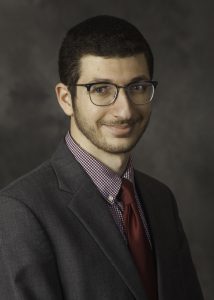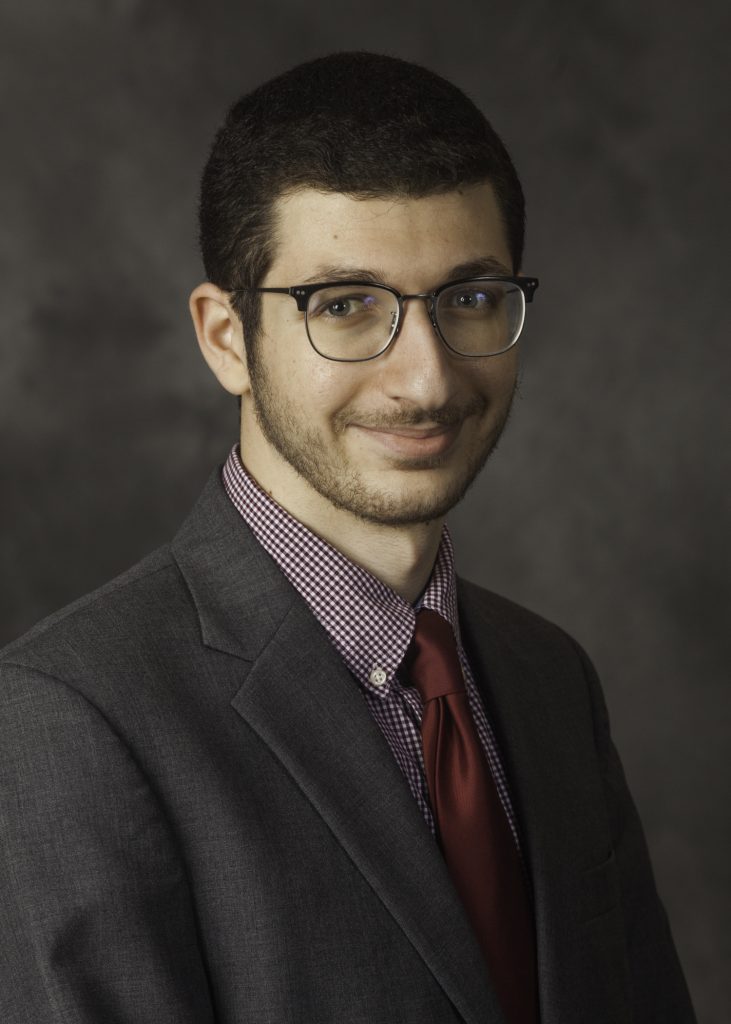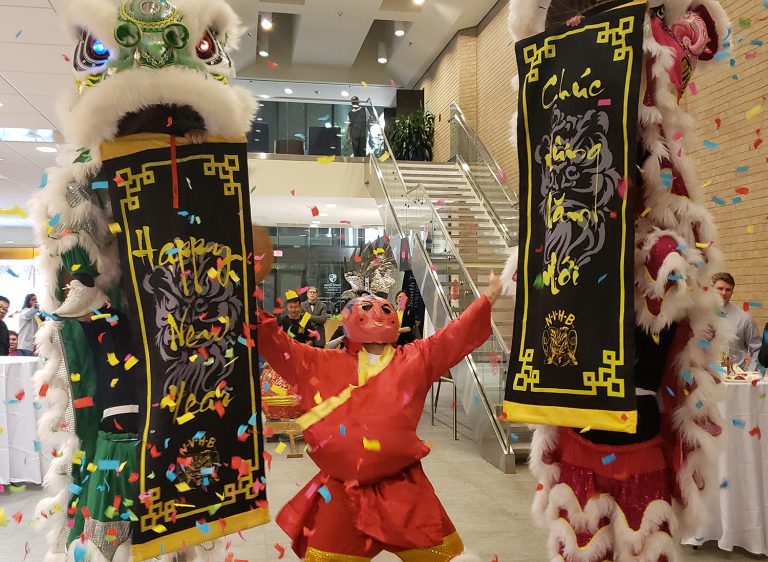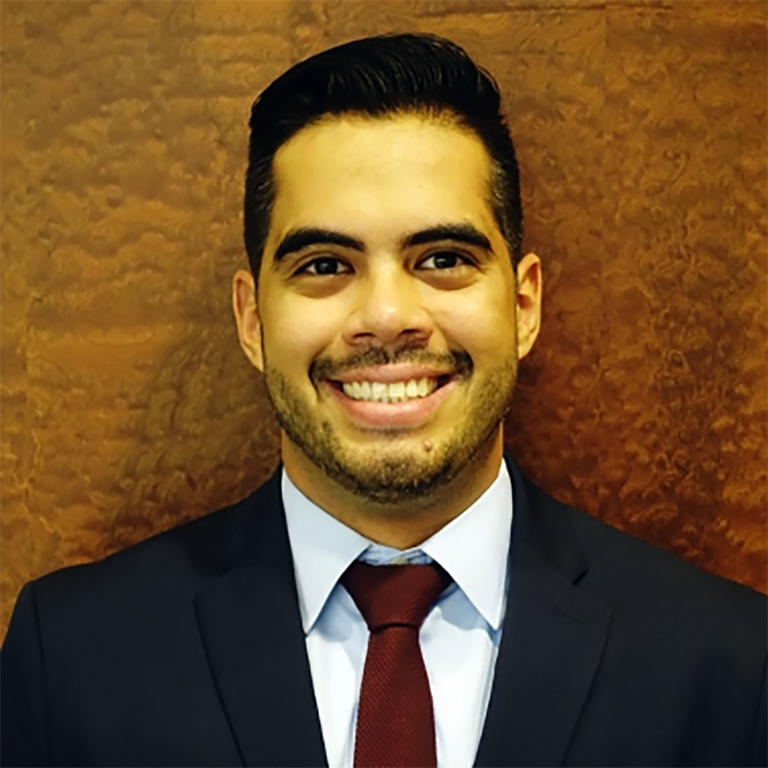
I am a 2L here at South Texas College of Law Houston. I’ve been very involved with the Student Bar Association, I’m the vice president-elect for 2022-23 school year. I served as a freshman senator for STCL Houston during my first year. I am also involved with the school’s Advocacy Program as a member of the moot court team.
I was born and raised in Houston, Texas, and I attended the University of Houston for my undergraduate degree, majoring in political science and minoring in philosophy.
Why did you choose to attend law school – and particularly, why South Texas College of Law Houston?
My background and experiences as an Arab American led me to start my legal career so I can correct injustice as an attorney. What drew me to STCL Houston was the highly rated Advocacy Program and the school’s commitment to diversity and community.
What is your vision for your role as vice president of the Student Bar Association?
What I have enjoyed most about being a SBA officer is mentoring incoming law students. I worked to overhaul our mentor/mentee program, and I plan to continue helping to build the mentorship program in my role as vice president.
What achievements or activities are you most proud of during your time at South Texas? Why?
During my 2L year, I helped International Law and National Security Society and the American Civil Liberties Union organize an educational panel of professors discussing human rights and international law in the Middle East. I am grateful to be in an environment where important discussions like this could be done with nuance and with a genuine focus on the law and justice. I am proud of this event because I helped further the dialogue about the Middle East for the first time in my legal career.
How does having a diverse student population enhance the legal education at South Texas?
Diversity in the student body is crucial for a law school because exposure to different viewpoints on the law gives a student at STCL Houston a well-rounded perspective on the system that governs us all. In addition, by learning and discussing the law in a diverse setting, students potentially have their outlook on life challenged and may evolve by examining their beliefs.
What have you enjoyed most about attending STCL Houston so far? Have any classes or professors stood out to you? Why?
In addition to the Candyman Deli, my favorite thing about STCL Houston is the sense of community here. A big proponent of fostering that sense of community was my Legal Research and Writing 1 class with Professor Vukadin. I started law school during the pandemic, so making friends was difficult. Despite the remote setting, Prof. Vukadin’s class felt like a “homeroom,” and her use of Zoom breakout rooms and interactive activities helped create friendships in our section.
Professor Fleming also stands out to me because of his vast knowledge of international law and his dedication to advocating for human rights.
What are your plans after graduation?
My dream job would be to work in the Department of State or Department of Justice. In my career, I want to focus on gaining as much litigation experience as I can and adding more skills to my toolbelt. My internship with Disability Rights Texas allowed me to learn how to advocate for those without a voice.
Tell us a bit about your family and background outside of law school.
I am a first-generation American. My father was born and raised in Ramallah, Palestine, and my mother’s parents were also born and raised in Palestine. In the year 1550, my ancestral grandfather, Rashid Hadadeen and his five sons, founded my hometown of Ramallah, Palestine. Our family coffee shop is still in Ramallah, started by my grandfather and carried on by my uncle. Before that, my ancestors can be traced to the Canaanites and the Ghassanites, who were some of the first Christians.
On my mother’s side, my grandfather lived outside of Jerusalem before his family left for Jordan as refugees after 1948. Both sides of my family eventually came to the United States and lived the American Dream.
As part of the first generation in the diaspora, it is important to me that my Arab heritage lives on. From the age of nine, I began learning and performing a traditional folkloric dance called dabke, which gave me a way to connect with my culture and share it with the West. In college, I became the head choreographer and leader of my church’s dance troupe, Kolna Wahad, which translates to “We Are All One.” I also help plan a summer camp for Palestinian-American youth to teach teens about their ancestry and culture.
What does the recognition of Arab American Heritage Month mean to you?
The recent recognition of Arab American Heritage Month is a key step in seeing Arab Americans as a piece of the United States’ multicultural quilt. To many Americans, the only thing they might know about Arabs is the stereotypes they see portrayed in the media. The recognition of Arab Americans finally shines a light on us and can give us a voice and platform to show the rest of the world who we are.
Ignorance about the Middle East is at an all-time high, yet honoring Arab Americans in April, which follows Black History Month in February and Women’s History Month in March, will hopefully lead Americans to the understanding that the stories and struggles of minorities are not all that different. Growing up as a Palestinian-American, my identity was inherently political, but for me, it was just who I am. I am not the “conflict”; I am a person just like you. The recognition of Arab American Heritage Month is a step toward that unity and equality, and I pray that lasting change will come with it.
What impact does the presence of Arab Americans have in law schools and legal offices?
The presence of Arab Americans in law schools and legal offices is impactful because it shows how we work toward justice in our community through the law. It is a heavy burden on our shoulders to contend with racism and ignorance in society. Having Arab Americans in our legal system increases the visibility of our perspectives and culture. Law school is a place for open communication, and amplifying Arab American voices here allows us to tell our own narratives instead of them being told through a colonialist lens.
There have been many Arab American trailblazers before me. For example, attorneys like George Salem, whose work in Washington, D.C., continues to promote U.S. relations with the Middle East. I also look up to local Palestinian attorneys like Ibrahim Khawaja, who has championed putting a stop to hate crimes through his work as First Assistant District Attorney in Fort Bend County.
Is there anything else you’d like to share that we haven’t asked about?
Arab Americans have shaped our world in many ways. For example, a Palestinian American artist, Rajie Cook, pioneered the use of universal symbols for the U.S. Department of Transportation. He passed away in 2021, yet his legacy will live on. The next time you go to the restroom, take a moment to notice the signs designating the women’s and men’s rooms. That design, as well as the “no-smoking,” “parking” and “baggage claim” graphics were created by him and his team.
I am honored to have been recognized by South Texas during Arab American Heritage Month.




